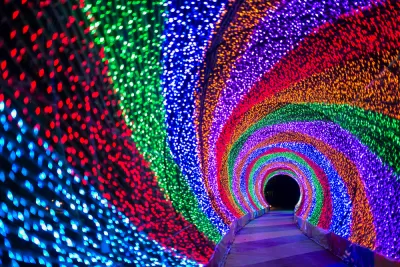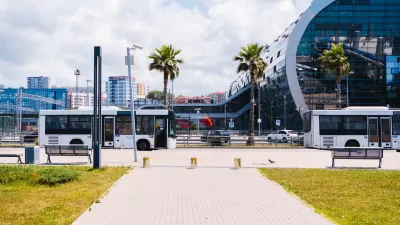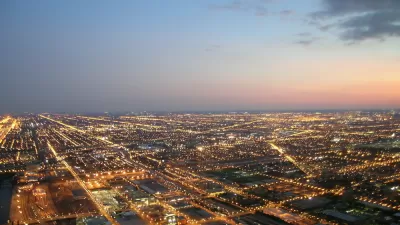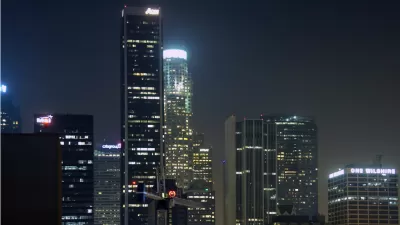A report from the American Medical Association says LED lights are bad for our health, inspiring some cities to re-evaluate the technology.

Cities all over the country are adding LED lights to streets and roadways all over the country, seeking energy efficiency and reduced maintenance requirements. A new report, however, raises alarms about the health impacts of the lights. Michael Ollove reports:
The American Medical Association issued a warning in June that high-intensity LED streetlights — such as those in Seattle, Los Angeles, New York, Houston and elsewhere — emit unseen blue light that can disturb sleep rhythms and possibly increase the risk of serious health conditions, including cancer and cardiovascular disease.
According to Ollove, nearly 13 percent of roadway lighting now use LED lights, with many more plans planning to switch to the technology in the near future, so the AMA's report applies to a huge swath of the country.
And that's not the only concern. "The AMA also cautioned that those light-emitting-diode lights can impair nighttime driving vision," adds Ollove.
The good news is that the AMA does approve of lower-intensity version of the bulbs. New York City, for example, has switched to a lower-intensity version of LED lights in efforts to retrofit its streetlights. Ollove details the efforts of cities like Phoenix and Lake Worth, Florida to find a solution that still installs new lights, but with the AMA's concerns in mind. Other cities have been far more dismissive of the report's findings.
FULL STORY: Some cities are taking another look at LED lighting after AMA warning

Alabama: Trump Terminates Settlements for Black Communities Harmed By Raw Sewage
Trump deemed the landmark civil rights agreement “illegal DEI and environmental justice policy.”

Planetizen Federal Action Tracker
A weekly monitor of how Trump’s orders and actions are impacting planners and planning in America.

The 120 Year Old Tiny Home Villages That Sheltered San Francisco’s Earthquake Refugees
More than a century ago, San Francisco mobilized to house thousands of residents displaced by the 1906 earthquake. Could their strategy offer a model for the present?

In Both Crashes and Crime, Public Transportation is Far Safer than Driving
Contrary to popular assumptions, public transportation has far lower crash and crime rates than automobile travel. For safer communities, improve and encourage transit travel.

Report: Zoning Reforms Should Complement Nashville’s Ambitious Transit Plan
Without reform, restrictive zoning codes will limit the impact of the city’s planned transit expansion and could exclude some of the residents who depend on transit the most.

Judge Orders Release of Frozen IRA, IIJA Funding
The decision is a victory for environmental groups who charged that freezing funds for critical infrastructure and disaster response programs caused “real and irreparable harm” to communities.
Urban Design for Planners 1: Software Tools
This six-course series explores essential urban design concepts using open source software and equips planners with the tools they need to participate fully in the urban design process.
Planning for Universal Design
Learn the tools for implementing Universal Design in planning regulations.
Clanton & Associates, Inc.
Jessamine County Fiscal Court
Institute for Housing and Urban Development Studies (IHS)
City of Grandview
Harvard GSD Executive Education
Toledo-Lucas County Plan Commissions
Salt Lake City
NYU Wagner Graduate School of Public Service





























